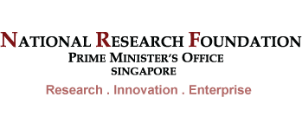[Workshop Announcement] 10th South China Sea Tsunami Workshop
SJINML Seminar Room Singapore, SingaporeThe workshop will be held from 10 – 11 October 2018 in NUS. Please contact Dr. Linlin Li at LLLI@ntu.edu.sg for email registration. This workshop is co-organised by Earth Observatory of Singapore, Nanyang Technological University, National University of Singapore (Department of Civil and Environmental Engineering) and IOC South China Sea Tsunami Warning Advisory Center, Beijing.
For more information, please visit http://tsunami.ihs.ncu.edu.tw/~scstw/2018/index.html.


